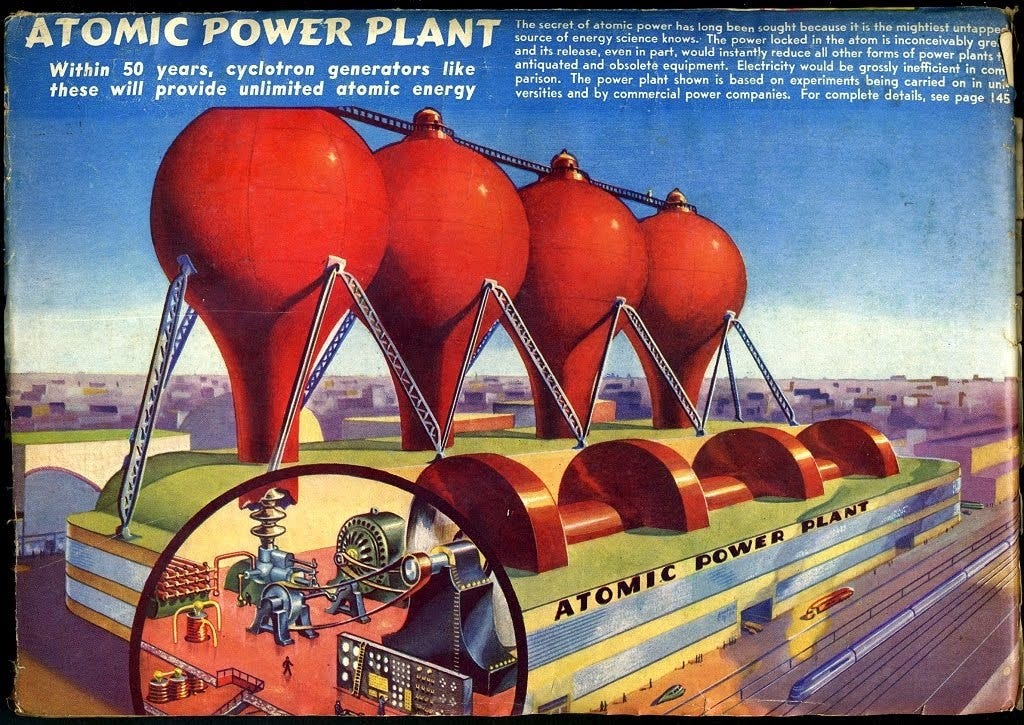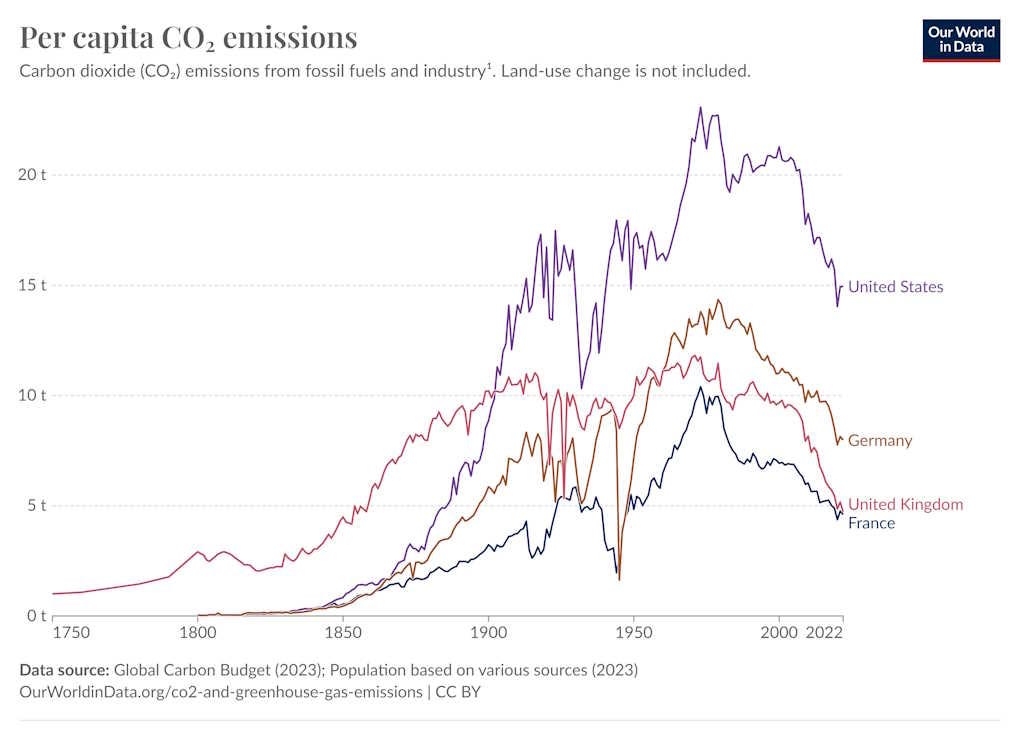Let go of the nuclear retrofuture
Fission power is great, but we invented something even greater.
“Roads of crystal soared between the spires, crossed and recrossed by smooth silver shapes like beads of running mercury.” — William Gibson, “The Gernsback Continuum”
I was happy to hear the news that Three Mile Island might be restarting. Three Mile Island, as you’ll recall, is the nuclear plant that suffered a meltdown in 1979. It’s the worst nuclear accident in U.S. history, and yet — unlike Chernobyl or Fukushima — there were zero injuries or documented adverse health effects. Now Microsoft is trying to restart the remaining reactor, in order to power an AI data center. It still needs to get a permit, which could take a long time.
But the mere fact that it’s being attempted — and that it’s not causing a public backlash — is a great sign. It means America is getting more serious about energy abundance, and it stands in stark contrast to, say, Germany, where the government demolished a bunch of perfectly good working nuclear reactors even though public opinion was against the move.
I am a fan of nuclear power. It’s clean. It’s reliable. And despite a couple of high-profile disasters, it’s a heck of a lot safer than people think. Jason Crawford has a good post in which he argues that A) the “linear no threshold” health models used to assess cancer risks from nuclear accidents are not very good models, and B) the “ALARA” safety rule imposed on nuclear power is guaranteed to keep pushing up costs even when safety gains are tiny. This doesn’t mean that nuclear power is without drawbacks — there really is a long-term waste storage issue, since a few fission waste products remain dangerous for thousands of years. But overall, I think the benefits to climate, and to air quality, far outweigh that danger.
We don’t have to get theoretical in order to see the benefits of nuclear power, though. We can just look at the experience of France:
France built a bunch of nuclear reactors in the 1970s and 1980s, and by the 2000s almost 80% of France’s electricity came from nuclear power. As a result, France’s carbon emissions dropped abruptly in the 80s, even as its peers continued to pollute for a decade or two longer:
France is also ahead of most European countries in clean production — France’s carbon emissions per dollar of GDP is lower than most of its peers. And as an added benefit, France’s nuclear reactors made it less vulnerable to the cutoff of Russian gas during the Ukraine war.
In my mind, there is no question that the United States should have followed France’s lead and built a massive fleet of nuclear reactors in the 1980s and 1990s, replacing its coal-fired power plants. And there’s little doubt that regulation, and exaggerated worries about nuclear safety, contributed to our failure to do so.
To many technologists, the story of America’s failure to build nuclear is the ur-story of free enterprise versus government, of progress versus activism, and of techno-optimism versus pessimism. Nuclear’s defeat left scars of resentment, cynicism, and mistrust — of the environmental movement, and of regulation in general. Even to this day, how many nuclear reactors get built remains an important symbolic bellwether to many technologists, seeming to speak volumes about the relationship between technology and society.
And yet as much as I like nuclear power and as much as I wish we had built a lot of it in the 80s and 90s, I can’t escape the conclusion that the nuclear ship has sailed. Nuclear power didn’t get any worse since 1980, but other technologies — in particular, solar and batteries — have gotten immeasurably, stupendously better since 1980. Nuclear still has an important place in the energy mix of the future, but as a niche source of supply rather than as the star of the show. The atomic age exists now as a retrofuture — a vision of a parallel future that might have been, which haunts us like a ghost here in the actual future that came about.





